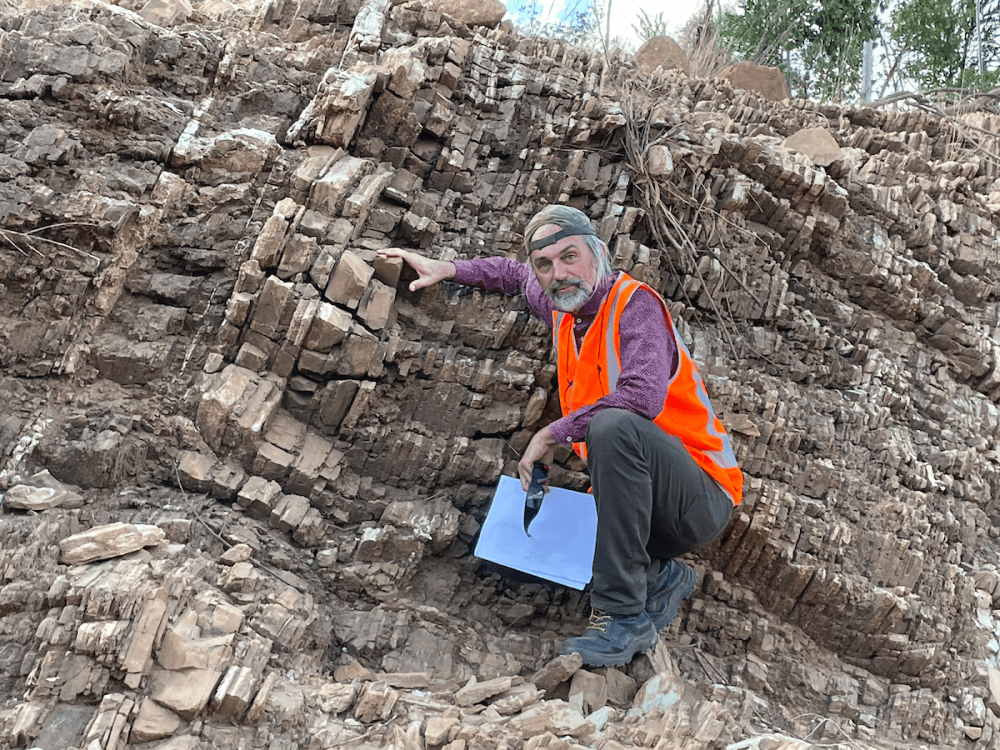Fossilized fats that date back over a billion years have revealed a whole community of previously unknown organisms that were shaping Earth’s ecosystems during the planet’s middle age. They were abundant in marine ecosystems, and while we don’t know what they would’ve looked like, they were considerably more complex than bacteria – something they may have used to their advantage.
“We believe they may have been the first predators on Earth, hunting and devouring bacteria,” said Jochen Brocks from the Australian National University (ANU), who shares first authorship of the study, in a statement sent to IFLScience.
The “Protosterol Biota”, which produced the “protosteroids” found, belong to a group of organisms known as eukaryotes, which is a massive umbrella that also encompasses fungi, plants, single-celled organisms, and animals – that’s us! They were very different from the eukaryotes we know today, however, as they evolved on a planet where there was very little oxygen.
Finding them involved studying fossilized fat molecules trapped within rock that formed at the bottom of what’s now Australia’s Northern Territory around 1.6 billion years ago. Inside the molecules, scientists detected primordial chemical signatures that hinted they had stumbled across something significant.
Fossilized fat has historically turned up a lot of ancient life.
Image credit: The Australian National University
If you’re wondering what fats could have to do with anything, there is a logical reason scientists are looking inside these molecules for clues about early life.
“Almost all eukaryotes biosynthesize steroids, such as cholesterol that is produced by humans and most other animals,” said Benjamin Nettersheim from MARUM, University of Bremen, Brock’s co-first-author, in another statement.
“Due to potentially adverse health effects of elevated cholesterol levels in humans, cholesterol doesn’t have the best reputation from a medical perspective. However, these lipid molecules are integral parts of eukaryotic cell membranes where they aid in a variety of physiological functions. By searching for fossilized steroids in ancient rocks, we can trace the evolution of increasingly complex life.”
In the evolutionary tree, the lineage of plants, animals, and fungi all link back to the last shared ancestor. Since that’s all the eukaryotes, it’s known as the Last Eukaryotic Common Ancestor (LECA). The biomarker signatures found trapped within the fossilized fat molecules indicated to researchers that these protosteroids may have come from that same LECA which gave rise to everybody else. So, if you’re partial to embroidery, it looks like it’s time to get stitching at the base of our family tree.
Another psychedelic artist’s impression of what early protosteroid-producing life might have looked like.
Image credit: Orchestrated in MidJourney by TA 2023
“The highlight of this finding is not just the extension of the current molecular record of eukaryotes,” added Christian Hallmann, one of the participating scientists from the German Research Center for Geosciences (GFZ) in Potsdam.
“Given that the last common ancestor of all modern eukaryotes, including us humans, was likely capable of producing ‘regular’ modern sterols, chances are high that the eukaryotes responsible for these rare signatures belonged to the stem of the phylogenetic tree”.
Trying to study ancient microbial worlds represents an enormous challenge for scientists, but discoveries such as this one bring us closer to tracing back to our roots and the microscopic eukaryotes that lived there. The team hopes next to zoom in on early eukaryotic life by shooting lasers at rocks coupled to an ultra-high resolution mass spectrometer.
Now there’s a Bond-esque methodology we can all get behind.
The study is published in Nature.
Source Link: “Lost World” Of Early Ancestors Revealed In Billion-Year-Old Fossilized Fat Molecules
